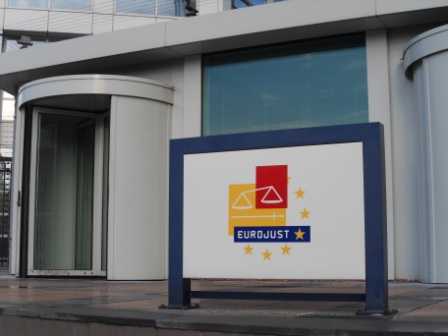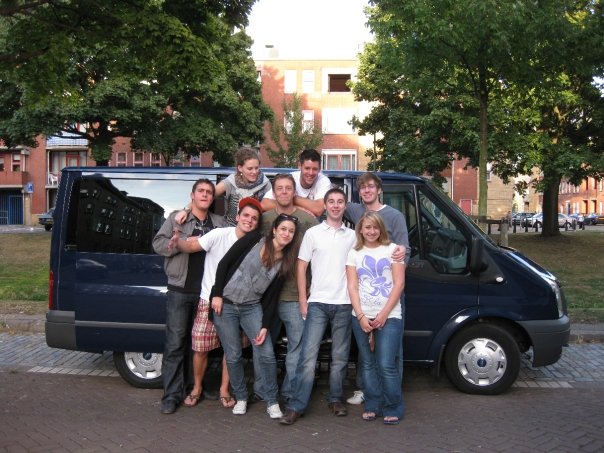Living in Europe has given me a very unique perspective on the international impact of American affairs. For example, I have learned more about America’s role in the financial crisis here than I ever did back home. Everything that happens in the States has a global reach, and I’d like to share my thoughts about the impacts of something that hits close to home for me on this Veteran’s Day: the role of the American military throughout the world.
Today is November 11, Veteran’s Day, 2009. It celebrates the heroism and honor of those servicemen and women who have served in any capacity at home or abroad, especially those who have fought to defend our country in foreign wars. I have several friends and former classmates in the military, many of whom have taken tours in Afghanistan and Iraq. My sister and brother were both simultaneously in Iraq for a good portion of the last year serving in the Army. My sister is a Major and has been deployed several times, but this was my brother’s first deployment and he, recently engaged, was an activated reservist in a Psy-Ops division. For their service, the nation should be grateful and respectful.
Their service to their country is unquestionably brave, but often times the reasons for their presence are unclear. Questions about the efficacy as well as the true motivation for our strategies have gone unanswered, and I don’t really expect that to change. I have conceded that I probably will not know the true motivation for continuing this war. So I guess I don’t really like the idea of war or foreign military action in general regardless of the reason, but it’s a fact that will not soon change. When it’s my own family and friends that I have to wish a happy Veteran’s day to, I really think about our current situation in juxtaposition with previous recourses that helped to resolve world conflicts and peace keeping efforts, and it’s interesting to draw upon my experiences here to do so.
Now my personal thoughts on it aside, it cannot be ignored that the American military has a profound presence throughout the world. One of my close friends here at EBS actually served in the Korean military alongside a US Army division (all Korean men serve in the military for two years). He trained with them and hung out with them on the weekends. Twenty minutes from Oestrich-Winkel in Wiesbaden, there is a large Army Airfield, which is one of the several US military installations in Germany and one of the 761 military sites on foreign soil. It’s easy to see how post WWII Europe and would desire a US military presence to stabilize the region and prevent further conflict and how America would have a vested interest in preventing communist interference, but many people question why these bases are still here some 60 years later.
America is protecting her interests abroad by having military sites in foreign countries, and though many countries dislike the idea of having a foreign military presence on their soil (we would never allow it in our country), the fact is that a good portion of these installations are welcomed not only for the security their presence brings, but also the economic shot in the arm that a few thousand soldiers with no bills and some disposable income gives to a region. For example, on Sundays, several of the American EBS students go to a sports bar in Wiesbaden that is plastered with American sports memorabilia, serves buffalo wings and cheeseburgers, and gives a discount with an American military ID. Reservations are necessary because it is packed to the rafters with soldiers spending the entire evening at the bar watching the NFL. It’s not inexpensive either, but this bar has done a great job catering to a very specific American audience and there are many businesses in the region that follow a similar plan.
I have had discussions about the US military with several people from all over the world including one of my German friends who was very knowledgeable on the subject, and it’s clear to me that the presence of the American military is much more welcomed here than I could have ever thought. Despite their opposition to many of our current military operations, many Europeans regard the US as a stabilizing factor in the region and a safeguard against threats. They have become so accustomed to our presence that they were aghast when I told them that I don’t think it’s our responsibility to keep world peace. I mentioned to my friend that it’s the US tax dollar that supports these installations and that few Americans truly realize how many overseas operations currently exist. I then mentioned that the role that we have taken on is actually the formal responsibility of the UN or NATO and not that of any one nation’s military. He then countered by saying that these are powerless organizations that are slow to act and only do so after deliberating on an issue. So, by building a reputation of quick decision-making and readiness for military action, the US has become the de facto combination peacekeeper and local economic stimulus throughout the world.
On one hand it is nice to be regarded as a powerful nation with a strong military, but I am not sure how I feel about having the rest of the world expect us to be the first to resolve a conflict. We didn’t get involved in WWII until Japanese planes attacked Pearl Harbor in 1941, and we avoided the European theater in WWII until 1942, three full years after the war broke out. So we have ignored George Washington’s advice not to involve ourselves in foreign affairs and have strayed far from Theodore Roosevelt’s “Speak softly and carry a big stick†view of foreign relations. Our position in the world now allows us to leverage our economic and military strength to achieve goals in line with our own interests.
This policy has had a mixed bag of successes and failures. The Vietnam War was unpopular and the effectiveness of our presence was questionable; the Cuban embargo (Cuban Democracy Act) is often regarded as archaic and detrimental to the nation it was supposed to save. On the other hand, however, two days ago marks the 20th anniversary of the fall of the Berlin Wall, something that Germans are proud to celebrate, but it also serves as a stark reminder of the oppression that communism brought to the region. I can’t help but think of the way that the threat the USSR posed was neutralized: through very strong military inaction. Reagan is credited with ending the communist regime, but it was really just the straw that broke the camel’s back after a long series of strategic moves by his predecessors, none of which used military action to effect results. It is interesting, that despite very little military aggression directed toward Russia, the number of foreign bases surged to over 1000 at the height of the Cold War. The American military’s strength and global presence solved the problem without ever actually going to war with Russia. The Cuban Missile Crisis, one of the most volatile situations in modern history, was defused by a strong military presence and a slow trigger finger. It’s unfortunate to note that there are currently 184,251 troops deployed in Iraq and Afghanistan alone, and President Obama is in the process of narrowing between four strategies to push forward in Afghanistan; every plan involves more troops.
Like I said before, a Veteran is any person serving in the military during a time of war. So while the world remains divided on what the role of the US military should be, this time of war drags on into its ninth year creating more and more veterans each day, each having made unique sacrifices for his or her country. This war may not be popular and the end may not be in sight, but these men and women deserve the gratitude and respect of their countrymen. So I would just like to take this opportunity to remind everyone to thank the veterans they know.


